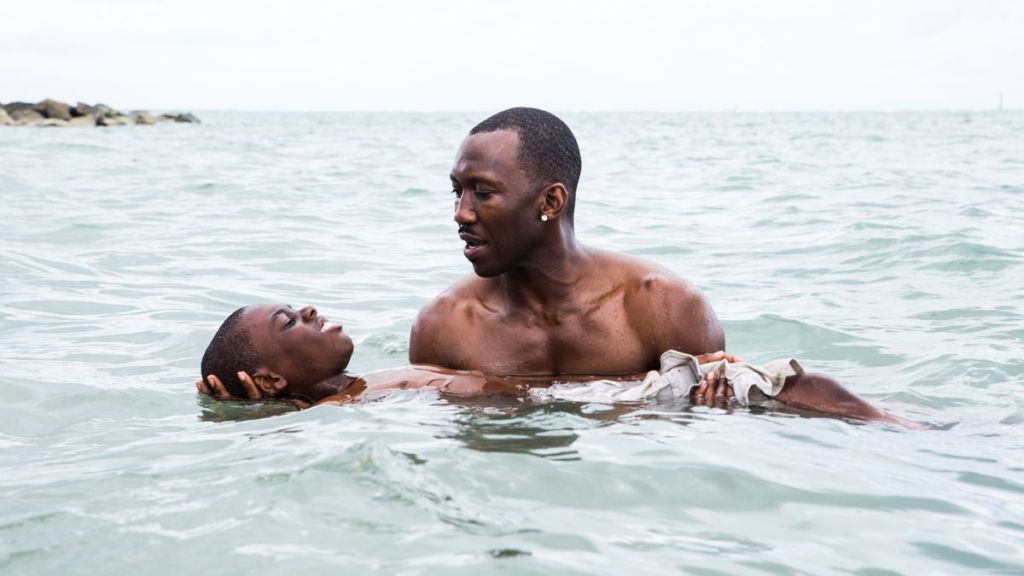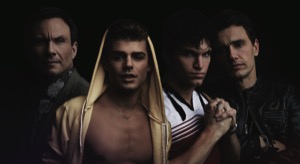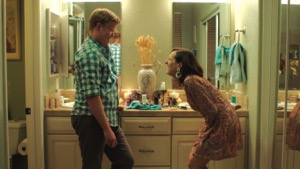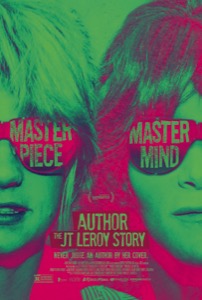Glimmers in the darkness
 I will repeat what everyone else has said over and over again: 2016 was dreadful, and as I write this, it continues to be wretched, with George Michael and Carrie Fisher dying as Donald Trump provokes a new Cold (or World) War. In times like these, with our waking lives enveloped by evil and despair, art can serve to distract, teach and comfort.
I will repeat what everyone else has said over and over again: 2016 was dreadful, and as I write this, it continues to be wretched, with George Michael and Carrie Fisher dying as Donald Trump provokes a new Cold (or World) War. In times like these, with our waking lives enveloped by evil and despair, art can serve to distract, teach and comfort.
As I wrote in my last column, La La Land does that well; its shiny, Technicolor cheer exists in a world outside of any sadness or strife not native to its own story. It’s pretty good escapism, something that very few of the big or the good movies have offered this year. (But not great: It thinks it’s Singing in the Rain, but it’s mostly humming in the shower.)
Usually, when the world sucks, Hollywood gives more than a few great distractions. But not 2016. Zootopia, the blockbuster animated movie, is about racism and eugenics. Captain America: Civil War, the billion-dollar grossing superhero film, is about the vigilantism necessary when government fails. La La Land’s major Oscar competition, Moonlight and Manchester by the Sea, are extraordinary films about sadness and doubt. And Rogue One, the latest Star Wars film, is as dark as night in its explication of the perils of heroic redemptions. (If you have kids, don’t take them.) None of these movies were made with full knowledge that 2016 would be the greatest annus horribilis since 1939 (or possibly, 1914). But sometimes the zeitgeist can’t be stopped, and sometimes that zeitgeist tells us a few things we need to know and shows us some things we need to see.
At a time of dramatically increased racism, poverty and misogyny, Moonlight is the most essential film of the year. Barry Jenkins’ triptych about the young life of a gay black man in Florida is about many things: poverty, drugs, filial piety, and, especially, the performance of masculinity. Alex Hibbert, Ashton Sanders and Trevante Rhodes play Chiron as various ages – a boy, a teenager, a young man, respectively – as he struggles to protect, express, and redeem himself. His surrogate father Juan (Mahershala Ali) is a drug dealer, his mother Paula (Naomi Harris) is a crack addict, and his only real friend is Kevin (at various ages Jaden Piner, Jharrel Jerome, and André Holland), whose confidence, both sexual and social, is magnetic. The film is weirdly and frustratingly timid in its depiction of homosexuality, but that doesn’t detract from its depiction of finding grace in a world of pain.

Manchester by the Sea is as white as Moonlight is black, as neither have speaking roles for the other race, but it does similar work by teaching us how to make our way through suffering. Casey Affleck is Lee Chandler, who must figure out how to take over parenting his nephew Patrick (Lucas Hedges) after Lee’s brother Joe dies. Lee is already overwhelmed by almost unimaginable grief – it feels very 2016 in that way – and he thinks he is incapable of fulfilling Joe’s wishes and Patrick’s needs. His path is as messy as Chiron’s, fraught with the expectations of duty and manly emotions and parenthood, but Kenneth Lonnergan writes and directs Lee and Affleck to a quiet, bittersweet place of good enough. Both Moonlight and Manchester by the Sea taught me how to see glimmers in the darkness.
Several other of the year’s great films do similar work. Arrival, Denis Villeneuve’s masterful and gorgeous adaptation of a Ted Chiang short story about Earth’s first contact with alien life, is about connection and communication, about finding meaning in uncertainty and seeming chaos. Amy Adams is a linguist haunted by the death of her daughter as she tries to decipher the language of the squid-like, tree-like visitors. Natalie Portman gives a more mannered but ultimately epic performance as Jack Kennedy’s widow in the hypnotic Jackie, which details the week following the president’s assassination. In trying to define her flawed yet awe-inspiring husband’s legacy through his funeral, she rages, thrashes and grasps for meaning in meaningless tragedy.
Other People, Chris Kelly’s hilarious and devastating autobiographical first film, is about the year David (Jesse Plemmons), a gay comedy writer, spends caring for his mother (a miraculous Molly Shannon) as she dies of cancer. This sort of thing, David says, is only supposed to happen to other people: What do I do when it happens to me? In Swiss Army Man, Hank (Paul Dano) uses a slowly reanimating corpse (played by Daniel Radcliffe) to create the life he never had but always wanted, literally creating meaning out of death. The film’s power is in Hank’s ridiculous, but profound, creativity.
Several of my other favorite films don’t even bother to seek meaning or lessons beyond their horror. The nihilism of The Lobster, in which those who cannot find life partners are turned into animals of their choice (Colin Ferrel’s David chooses a lobster), is as disturbing as the cynicism of A Bigger Splash, the story of how the idle rich are consumed by petty games and jealousies while the desperate poor languish at the periphery. And Deadpool, the movie at which I probably had the most fun this year, is a comic book film that makes no attempt to be about anything but its own hyper violence and filthy jokes. In that way, it functions in many ways like La La Land, as a distraction that panders to our simplest emotions. La La Land is a hopeless romantic wish fulfillment, and Deadpool is about fulfilling the impossible to fulfill the wish that thorny problems can be solved with perfectly aimed insults, blades and bullets.
2016’s disasters can’t be killed so easily.
Originally published in LGBT Weekly.



